Why did O.J. run to Miami, and what did he do during seven years here?
People running away from their past often end up in Miami. O.J. Simpson ran here, too, seeking tolerance, golf courses and lenient Florida laws that shielded his assets from the parents who accused him of killing their children.
Found not guilty of nearly decapitating ex-wife Nicole Brown Simpson with a knife and stabbing Ron Goldman in a 1995 double murder trial that transfixed and split the nation, the former football star moved his daughter and son from Los Angeles to a house in Kendall.
There he lived, for about seven years, at the end of a driveway lined with royal palms, trying to blend in as a single dad in suburbia. But, Simpson, who died of cancer Wednesday at age 76, could not escape his ghastly celebrity.
In fact, Miami being Miami, he reveled in it.
“At first he thought he could lead a quiet life, but, because of his infamy, Miami wouldn’t let him,” Simpson’s Miami attorney, Yale Galanter, told the Herald. “I was amazed at how people flocked to him in public, wanting to say hello and snap a photo. Every time he walked into a room you could feel his aura and hear the whispers -- ‘Did he or didn’t he?’”
Simpson spent a lot of time playing golf, flashing his famous smile and waving a cigar at onlookers. He was a regular on public courses. His attempts to attain membership at private clubs were repeatedly rejected. As was his application to live in the gated, exclusive enclave of DeGarmo Estates.
READ MORE: From football star to murder suspect to Kendall man: O.J. Simpson’s complicated legacy
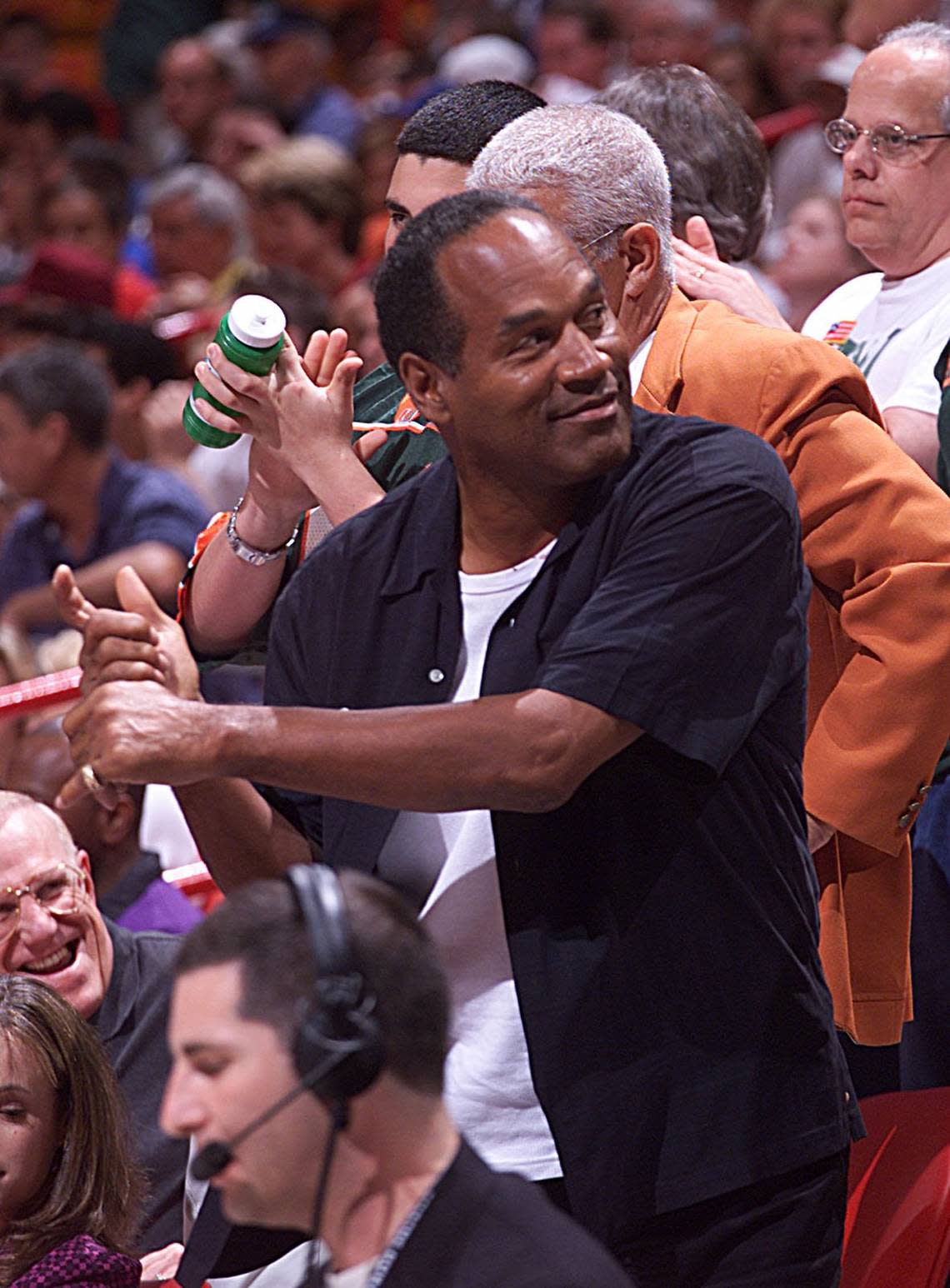
He ate and drank at Cafe Tu Tu Tango, Hooter’s and Senor Frog’s in Coconut Grove, or the Palm in Coral Gables, shaking hands, signing autographs.
He cheered from the bleachers at son Justin’s Gulliver Prep football games and attended daughter Sydney’s dance recitals.
At restaurants, shopping malls and sports events, he was chatty, gregarious, charming.
Then there were the times the Hertz pitchman, TV broadcaster and “Naked Gun” actor showed the other side of his personality.
In 2000, three years after a civil court jury found him responsible for the deaths of Brown Simpson, 35, and her friend, waiter Ronald L. Goldman, 25, and ordered him to pay their families $33.5 million in damages, Simpson bought a 4,148-square-foot house at 9450 SW 112th St., near Killian High School, for $575,000. He lived there with Justin, then 12, and Sydney, then 15, who had been living with Nicole’s parents until Simpson regained custody.
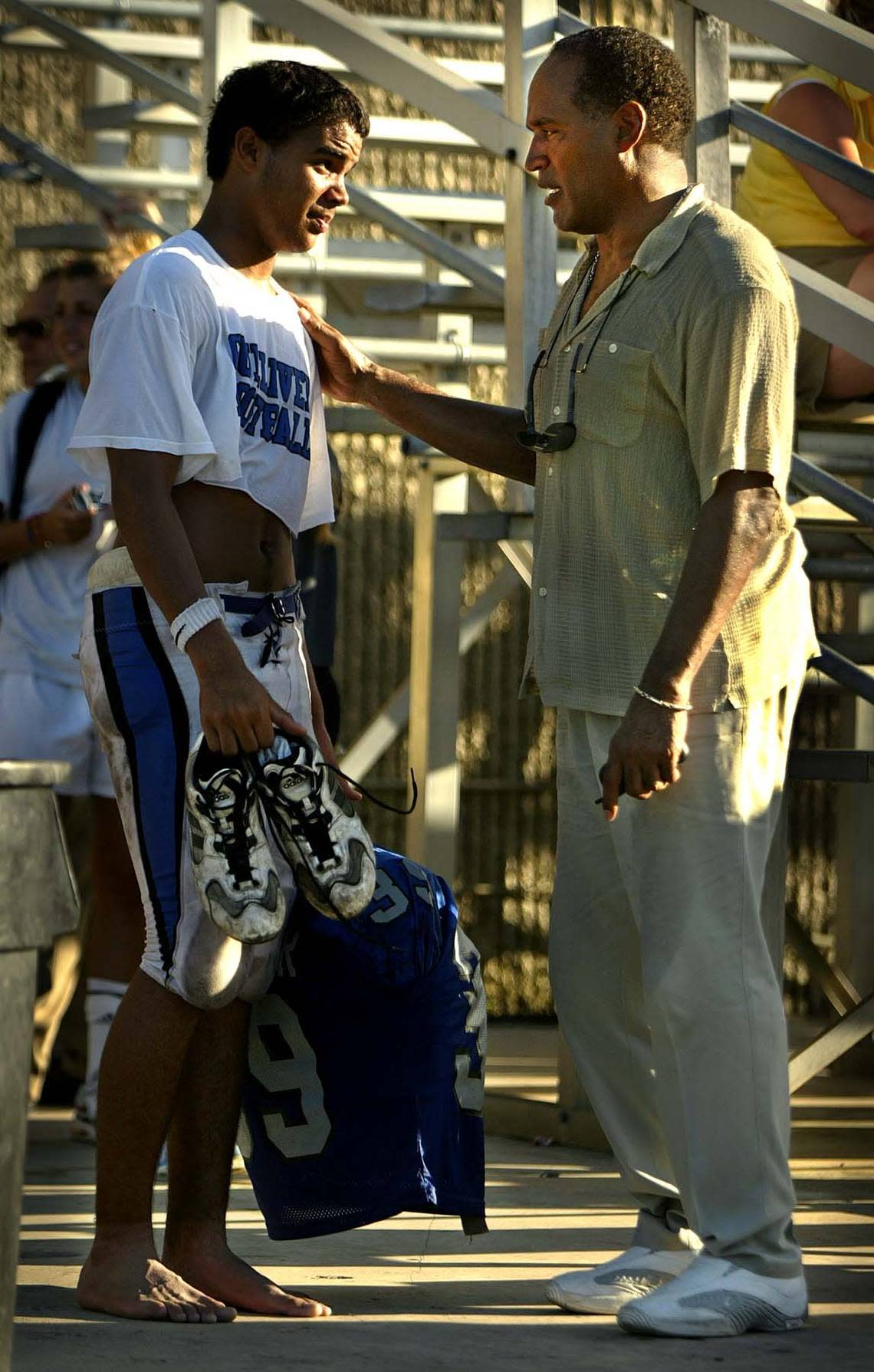
Three months after arriving in Miami, Simpson got involved in a road rage argument, and was accused of battery and burglary by a man who said Simpson reached through the driver’s side window, ripped off his sunglasses and scratched his face. Simpson mugged for the cameras in a Miami-Dade courtroom. He was acquitted.
“The guy was trying to take pictures of O.J.’s kids, and he was fiercely protective of them,” Galanter said. “There was a spotlight on O.J. and that attracted trouble.
“His acquittal in L.A. did not mean what a normal acquittal would mean. Americans had such strong opinions on O.J. that his trial never really ended. He did not get his life back.”
In 2001, Simpson’s house and nine other South Florida houses were searched by federal and local law enforcement officers as part of an investigation into a Quaalude and Ecstasy drug ring. Simpson was not among the nine people arrested and nothing was found in his home. Simpson’s house was also searched on suspicion that he was pirating cable TV signals but that proved to be false, Galanter said.
Department of Children and Families social workers constantly responded to anonymous concerns about the welfare of Simpson’s children, which were unfounded and “deliberately called in by vindictive people harassing O.J.,” Galanter said.
In 2002, after a bench warrant was issued for failing to appear in court, Simpson paid a $130 fine for speeding through a manatee zone on a 30-foot powerboat with girlfriend Christie Prody, according to the ticket from the Florida Fish and Wildlife Conservation Commission.
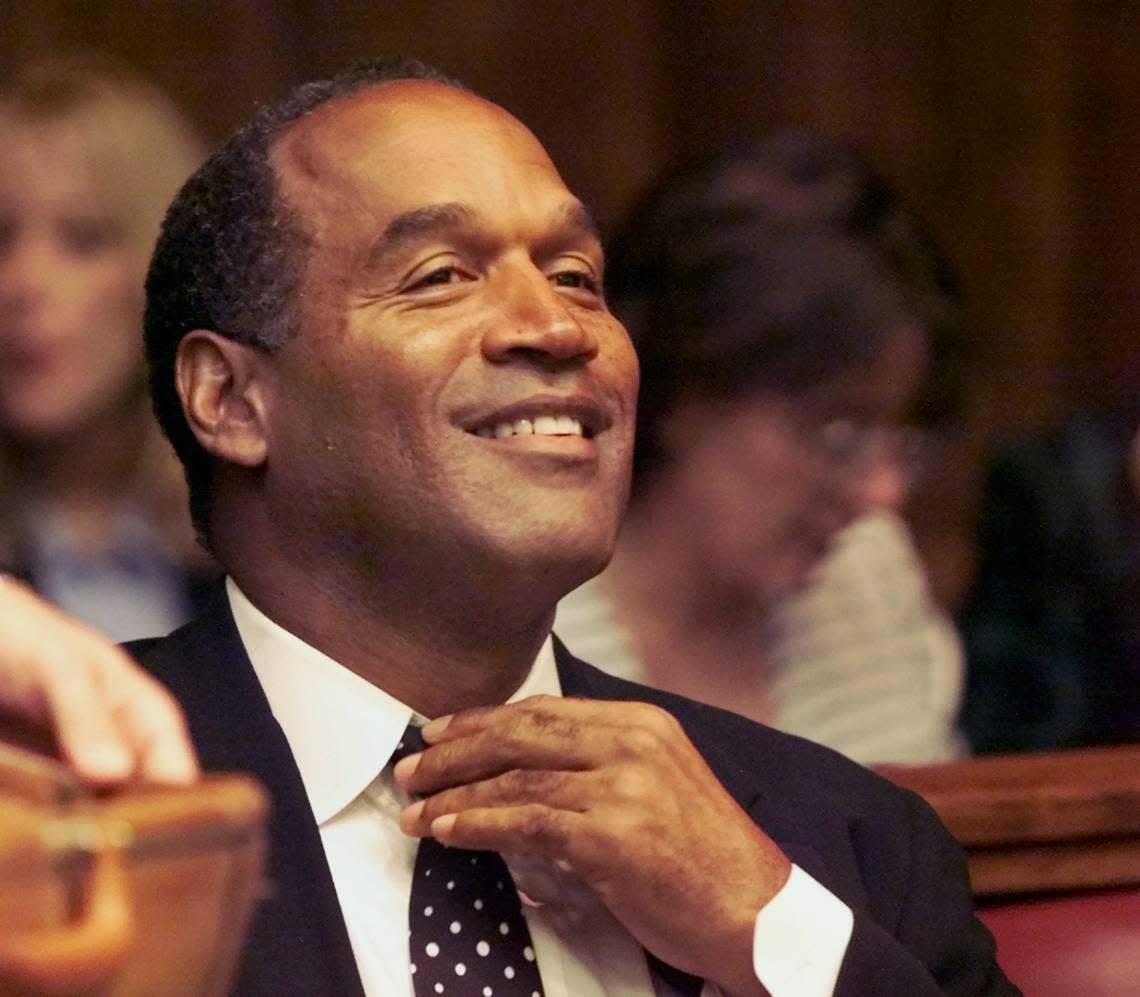
On Jan. 18, 2003, police came to the house when Sydney, then 17, called 911 crying for help with “an abuse thing.” She told officers she and her father “got into an argument over family issues,” according to the report. No charges were filed and Sydney temporarily left the house “to calm down.”
Sydney’s father had been convicted of abusing her mother after a 1989 incident when Nicole Brown Simpson, hiding outside in the bushes of their Brentwood house with a cut lip and black eye, told police “he’s going to kill me.” Simpson paid a fine and was put on probation. They divorced in 1992, and Brown Simpson called police again in 1993 as her ex-husband pounded on the door. “He’s back,” she said on the 911 call. She and Goldman were killed on June 12, 1994, as Sydney, 8, and Justin, 5, slept upstairs.
“When he was with us he was a gentleman who was devoted to his kids,” Galanter said. “He didn’t come from 90210 culture. He wanted to be a regular guy. The problem was, he was a lightning rod.”
Simpson did not work in Miami. He said he lived off pensions from the National Football League — and the then-NFL-highest salary he earned as a record-setting running back for the Buffalo Bills — as well as the Screen Actors Guild. Lawyers for the families of Goldman and Brown Simpson said Simpson, who paid only a fraction of the damages he owed, was making up to $400,000 from his pensions. But they could not seize those or Simpson’s house, which were protected from civil judgments by Florida law.
The families did collect some money when a judge awarded them the rights to Simpson’s “fictional memoir,” entitled “If I Did It,” which a publisher canceled because of public outrage over Simpson’s profit from it. The Goldmans published the book under the title “If I Did It: Confessions of the Killer,” with a bloody shoe print on the cover. It became a bestseller.
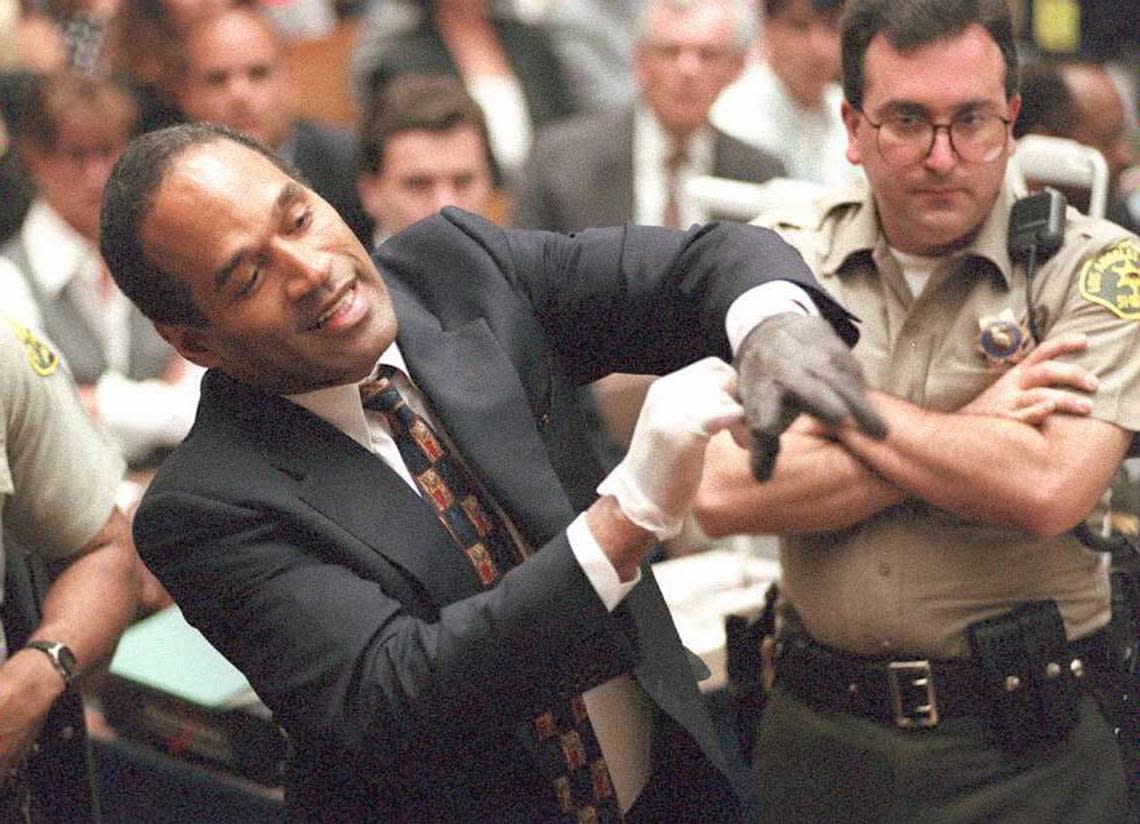
Las Vegas conviction
Simpson’s financial problems may have been what compelled him to set up a meeting with sports memorabilia dealers in a Las Vegas casino hotel room in 2007. He double-crossed them, storming in with men carrying guns and demanding what he insisted was his stolen property — signed game balls and ties he wore during the “trial of the century.”
This time, there was no slow-speed freeway chase with Simpson threatening suicide in the backseat of a white Ford Bronco. No “dream team” of defense lawyers. No televised trial.
Simpson was convicted in a nearly empty courtroom of armed robbery, kidnapping, conspiracy and other charges on Oct. 3, 2008, exactly 13 years after he was acquitted of double murder in Los Angeles and touched off debates about racism and justice in America. Simpson’s 1995 acquittal came three years after the 1992 Los Angeles riots broke out following the acquittals of officers in the Rodney King police brutality case.
On the robbery conviction, Simpson served nine years of a 33-year sentence at Lovelock Correction Center in Nevada.
When he was granted parole in 2017, he said he planned to move back to Florida.
“I’ve done my time, I’d just like to get back to my family and friends, and believe it or not, I do have some real friends,” Simpson said on a conference call. “Nine years away from my family, it just wasn’t worth it. I’m sorry.”
Tom Scotto, one of Simpson’s friends, told the Naples Daily News that Simpson would live with him in Naples until he could buy his own house.
“He’ll be OK,’’ Scotto said. “He’s not going to be poor. He’ll survive.”
“He says, ‘Tell them we’ll be playing golf again soon,’ ” Scotto told USA TODAY Sports. “He’s very positive. He’s always been positive.’’
Not welcome back in Florida
But then-Florida Attorney General Pam Bondi said Simpson was not welcome.
“Our state should not become a country club for this convicted criminal,” she said.
Simpson stayed in Las Vegas until his death. He was active on social media, offering his opinions on sports and news -- and the Alex Murdaugh murder trial. Simpson predicted there was enough doubt to acquit Murdaugh of killing his wife and son. Murdaugh was convicted.
“He died without penance,” David Cook, an attorney for the Goldman family, said in a Thursday statement about Simpson.
The Kendall house of “The Juice,” which became a tourist stop like other infamous South Florida spots such as Gianni Versace’s mansion on Ocean Drive, was foreclosed upon and and sold twice, most recently for $1.2 million in 2019, and demolished in 2022. The 1.6 acre lot is listed for $2.4 million.
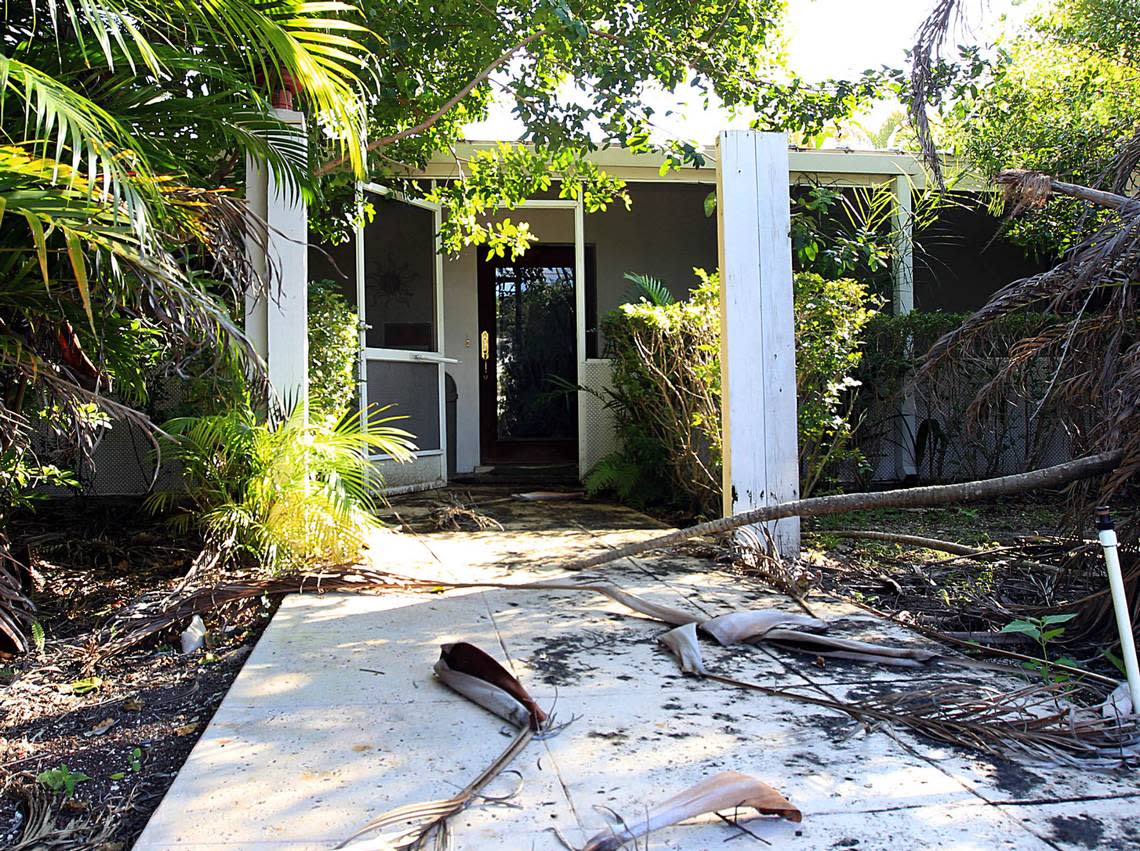
Simpson’s children with Nicole (he had three others with his first wife; their youngest daughter died by accidental drowning when she was 23 months old) continued to live in Florida while their father was in prison. Sydney, 38, graduated from Boston University and Justin, 35, graduated from Florida State. Their social media posts indicate they work in the real estate business.
In a pre-Super Bowl X (formerly Twitter) post on Feb. 11, TheRealOJ32 declared, “I’m from the Bay and I’m going with Bay!!! Let’s go @49ers!” Simpson, who grew up in San Francisco, posted what turned out to be his last video of himself, wearing a Titleist visor and a San Francisco 49ers No. 19 jersey. He was sitting by a swimming pool, smiling in the sunshine.
“My health is good,” he said, thanking his supporters. “Obviously, I am dealing with some issues, but I think I’m just about over it. I’ll be back on that golf course, hopefully in a couple of weeks.”
